LISTEN NOW:
Your Obsessive Planning Causes You More Stress Than Necessary
Maybe you have experienced the stress and anxiety that occurs on a Sunday night. You still have a few hours left to relax and prepare for the week ahead, but you feel stressed and rushed thinking about the week ahead. This feeling can be referred to as anticipatory anxiety.
That feeling of dread when you have something stressful coming up and you can’t stop thinking about it. Or maybe it’s just sitting there in the back of your mind somewhere, and no matter how much you don’t want to think about it, it’s somewhere on your mind.

Whether it’s dreading or fearing Monday morning, a stressful social event, a panic attack, or an interview- the feeling sucks.
Sometimes it can cloud your entire day. Sometimes-even days before the actual event has occurred. Why do we do this to ourselves?
The Symptoms Of Anticipatory Anxiety
The anxiety of anticipating an event can be experienced as a dull, long-term feeling, an intense short-term experience, or any degree in between. Each and every person’s experience is different. Listed below are some common symptoms.
- Overthinking/rumination
- Difficulty focusing
- Panic attacks
- Increased tension
- Irritability
- Lack of motivation
- Frustration
- Feeling a lack of control and apprehension
- Shortness of breath, or changes to your breathing overall
- Increased heart rate
- Insomnia or too much sleep
These symptoms can influence how you interact with others around you, your performance on daily activities, and more. Pay attention to what symptoms you may have, and how they may vary from your typical mood, or typical anxiety symptoms, if applicable.
Always contact a mental health professional if you need professional guidance or advice.
The Reasons For Anticipatory Anxiety
Anticipatory anxiety in and of itself is not a specific diagnosis, but it can be a symptom of other anxiety disorders. It can also be a normal experience that occurs before particularly stressful events.
Often this sensation of anxiety occurs when there is some level of unpredictability regarding the events to come. The overthinking that occurs during anxiety can give you a sense of control because you feel as though you are rehearsing for events or planning for every possible scenario so that you are not surprised.
Often, this overthinking does not help and only causes you to become more anxious and overwhelmed because you are continually focusing on this unpredictable moment in the future.
Anticipatory anxiety can also occur when you feel like you just don’t have enough time. Maybe you are feeling rushed to prepare everything for the week ahead on Sunday night, or you just want some time to finally relax.

Anxiety can be a result of feeling as though you don’t have enough time because this is another form of projecting yourself into the future. When you are constantly thinking about a moment in the future, then you are not focusing on the present. And, when you aren’t focusing on the present moment then it always seems like there is never enough time.
Lastly, anticipatory anxiety can also occur when you are expecting the worst in a situation. Often, events are so much worse in our mind. And often the anticipation is even worse than the experience itself.
But, let’s say something is happening in the future that you are really not looking forward to… Either way, anticipatory anxiety and overthinking the situation is not going to help you cope with it any better. It just leads to more stress.
What Can You Do About It?
Think About Things Differently
Challenge your way of thinking. If you are having thoughts about how this event will go wrong, or how much you don’t want to do it- challenge whether or not these thoughts are factual or helpful.
Changing your perception can help to lessen anticipatory anxiety so that you can look at things more realistically.
Example:
Current thought: I really don’t want to go to work on Monday.
Challenge the thought: Is this a helpful thought? I have made a conscious choice to continue working because having a steady income and stability is important to me. I am going to do my best to face and accept the choices I have made, or to make changes if I cannot.

Relaxation Techniques
Focusing on relaxing your body can help to lessen anxious thoughts. Anxiety occurs when your sympathetic nervous system is activated, resulting in a state of fight or flight. Essentially, your body is preparing for physical danger.
Taking the time to calm down your body physically will reverse this response and help you refocus in the present.
Suggestions:
- Take a few long, deep breaths all the way into your belly
- Take a soothing bath
- Gentle stretching of your body and areas that tend to get tense
- Progressive muscle relaxation- tensing and then relaxing areas of your body to invite a softening in your muscles
Prepare As Much As You Can
Anticipatory anxiety can become worse if you have done nothing to prepare for a potentially nerve-wracking event. Some examples could include an exam, driver’s test, interview, or an important meeting.
To minimize your worry and anxiety, do as much as you can to prepare. This can include studying, printing out copies of your resume and a cheat sheet of questions to ask the interviewer, bullet points for a meeting, etc…
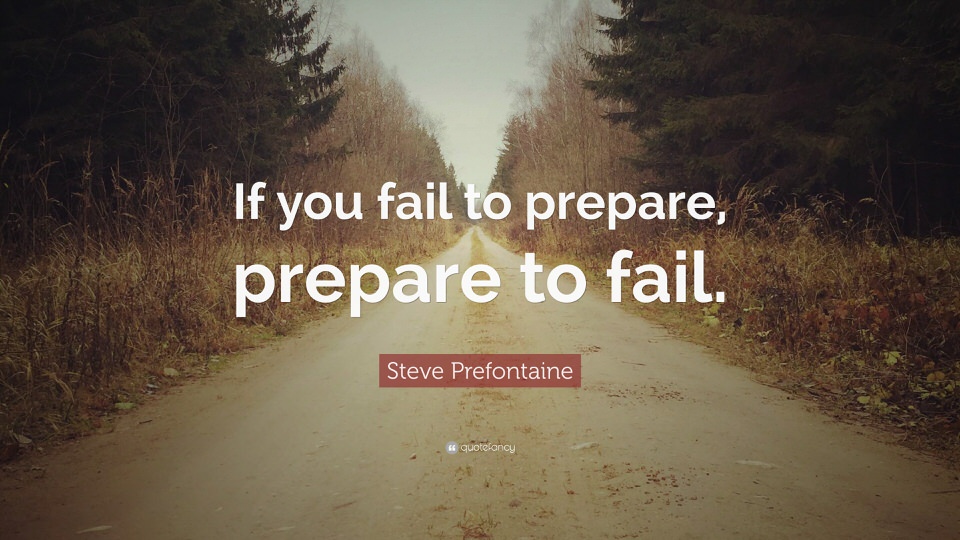
Taking these steps in advance (not at the last minute) can reduce the stress and anxiety you feel in the moments leading up to the event. It can help to confirm the thought that you did everything you could to prepare.
Focus On The Present Moment
Mindfulness is the practice of being aware in the present moment. Being mindful can prevent you from thinking and stressing about future events. Mindfulness can take focus and requires intentionality.
A few ways to practice mindfulness include:
- Meditating using a guided meditation or setting a timer
- Engaging in an activity mindfully- engage and focus on your 5 senses to be aware of your body and your experiences in the present
- Engage in an activity you enjoy and focus on that moment and how you presently feel (examples: playing an instrument, playing a sport, going for a walk, spending time with a friend)
Set Aside Time To Worry
This may sound strange, but try to intentionally set aside time to worry. This could involve setting an alarm for a specific time or choosing a time during the day. During this time, think about your worries, journal them, or vent to a friend- whatever you prefer.
Give yourself a set amount of time (maybe 5-10 minutes) and then tell yourself this is the only time you will spend worrying about this topic. Worrying does not help you accomplish your goals or get you any further in life- it only results in you feeling worse and halting your progress.
This will allow you time to acknowledge the thoughts going through your head and then practice letting go of them.
The Only Constant In Life Is Change
While you are anxious and worrying about an event that is about to occur, it will come and go. Be kind to yourself. Remind yourself that you have made it through plenty of things you did not think would be easy, and you can absolutely do it again.
You can always find something to stress about or feel anxious about from the future. You may not always feel as though you have control- but if you are ever feeling in a bind, try out one of the methods above and let me know how it works.
Please leave a comment below if you have experienced anticipatory anxiety yourself, or if you have any tips for how to cope with it.
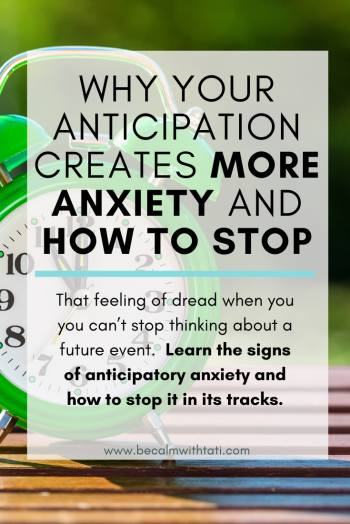
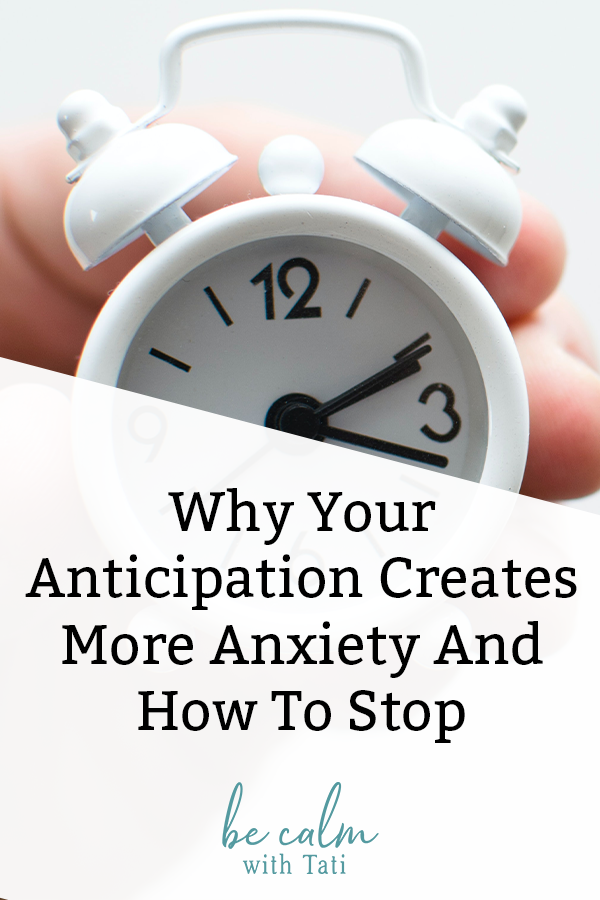
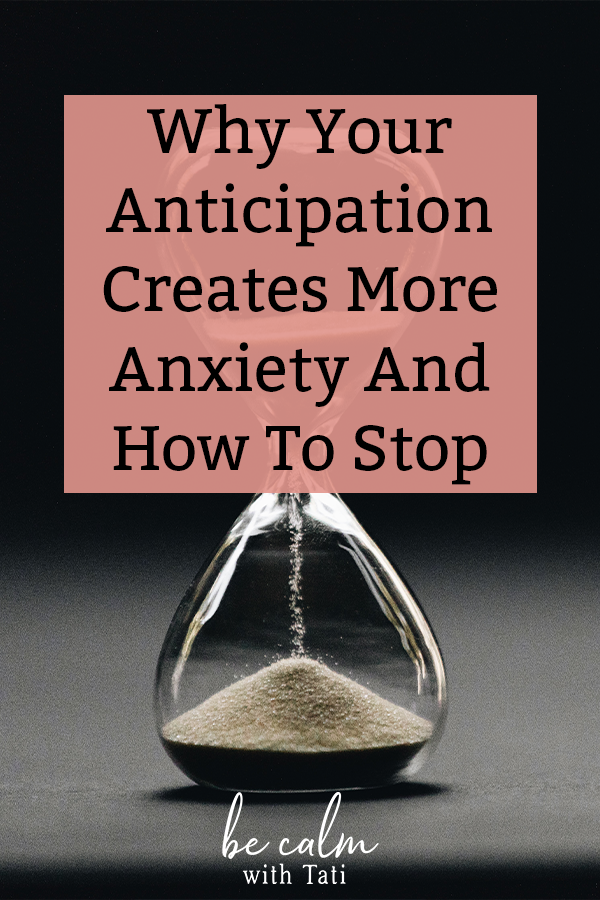




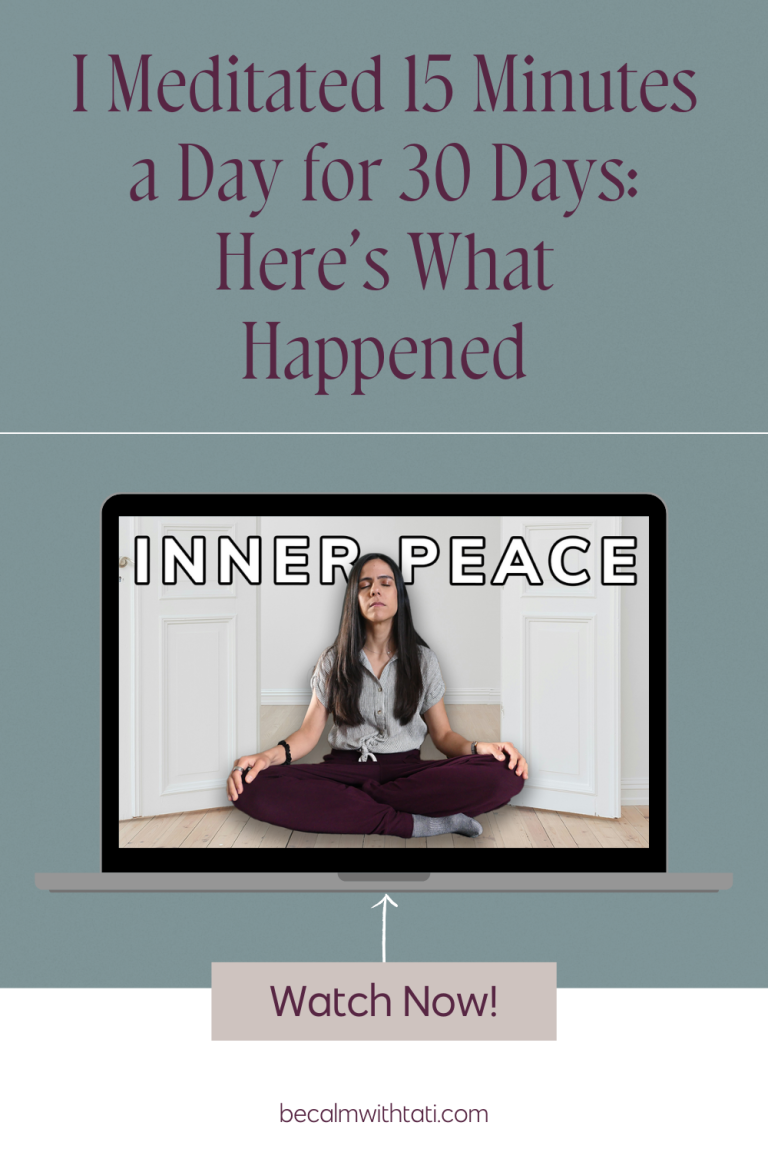

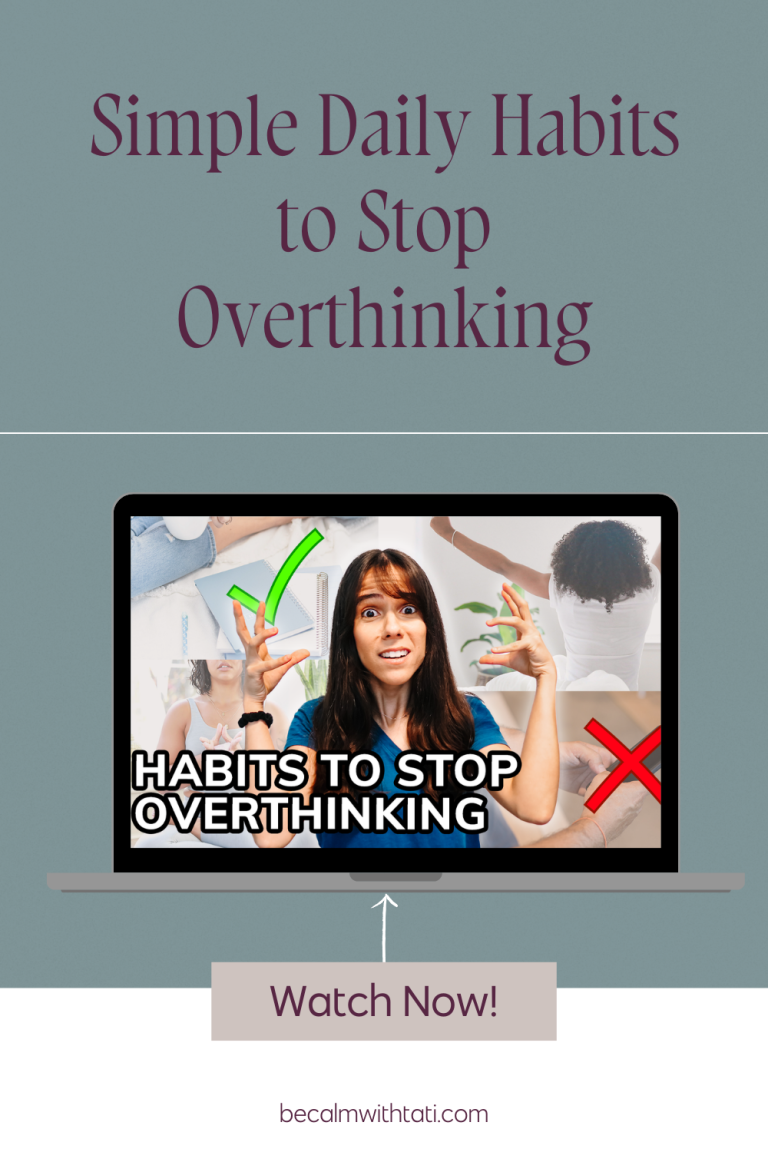







10 Comments
I was experiencing this but never really understood it. Your article has helped me to understand clearly my problem and i m going to use the techniques to control my anxiety. Thank you so much for writing this.
Thank you Vru! I’m so glad you found this article helpful! Sometimes just the process of labeling and understanding an experience can really help us cope with it better.
Thanks for sharing your ideas on how to manage anxiety! I like what you said about setting time aside to worry about and possibly set an alarm for a specific time. I have been having a lot of extra anxiety lately, and nothing has been helping so I might need to go see a doctor.
Thank you Dennis, I’m glad you found this article helpful! Best of luck coping with your anxiety!
Thanks for this Tati! I am often guilty of time-optimism. I take on too much and then get anxious about trying to get everything done on time. I can ruin a whole day by continually thinking about all the things I have to remember for tomorrow. I find this happens especially when my role is to plan a social or family event. The “unpredictability” is in whether everyone will have a good time, which is a hard thing to try to control. I always feel like I don’t have enough time to plan and prepare. I feel resentment building when I wish others would help out or take some initiative, because I am feeling overwhelmed, and others prefer to deny the amount of effort that is needed rather than lend a hand. I will think about this, thanks a lot for this piece!
You’re welcome, Krista! You’re definitely not alone in struggling with that. Planning an event can definitely be stressful! I think it can help to think one step beyond that: what if people don’t have a good time, how will you know? What will happen after that- will they judge you, criticize you, etc.? Going a little deeper into identifying your specific fears can help you to understand what’s happening and also to challenge those fears (are they likely, accurate, etc.). I definitely understand the feeling of overwhelm as well.
I hope this helps and wish you the best!
Thank you for this post! I found myself dreading certain social interactions in the past two months. After the event,i realized it wasn’t that bad!
I need to use the timed worry because I can get stuck and think about this with so much dread.
You’re welcome, Ash! I’m glad you found it helpful. The timed worry can definitely be a helpful tool.
I wish I could afford to have you council with me..
You have great wisdom.
Thank you for this article..
Blessings,
Lisa
Thank you so much, Lisa! I’m glad you found it helpful.